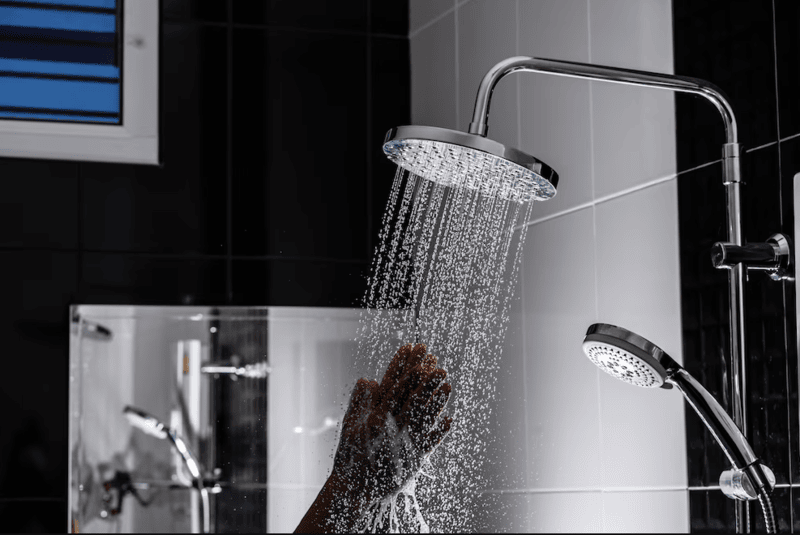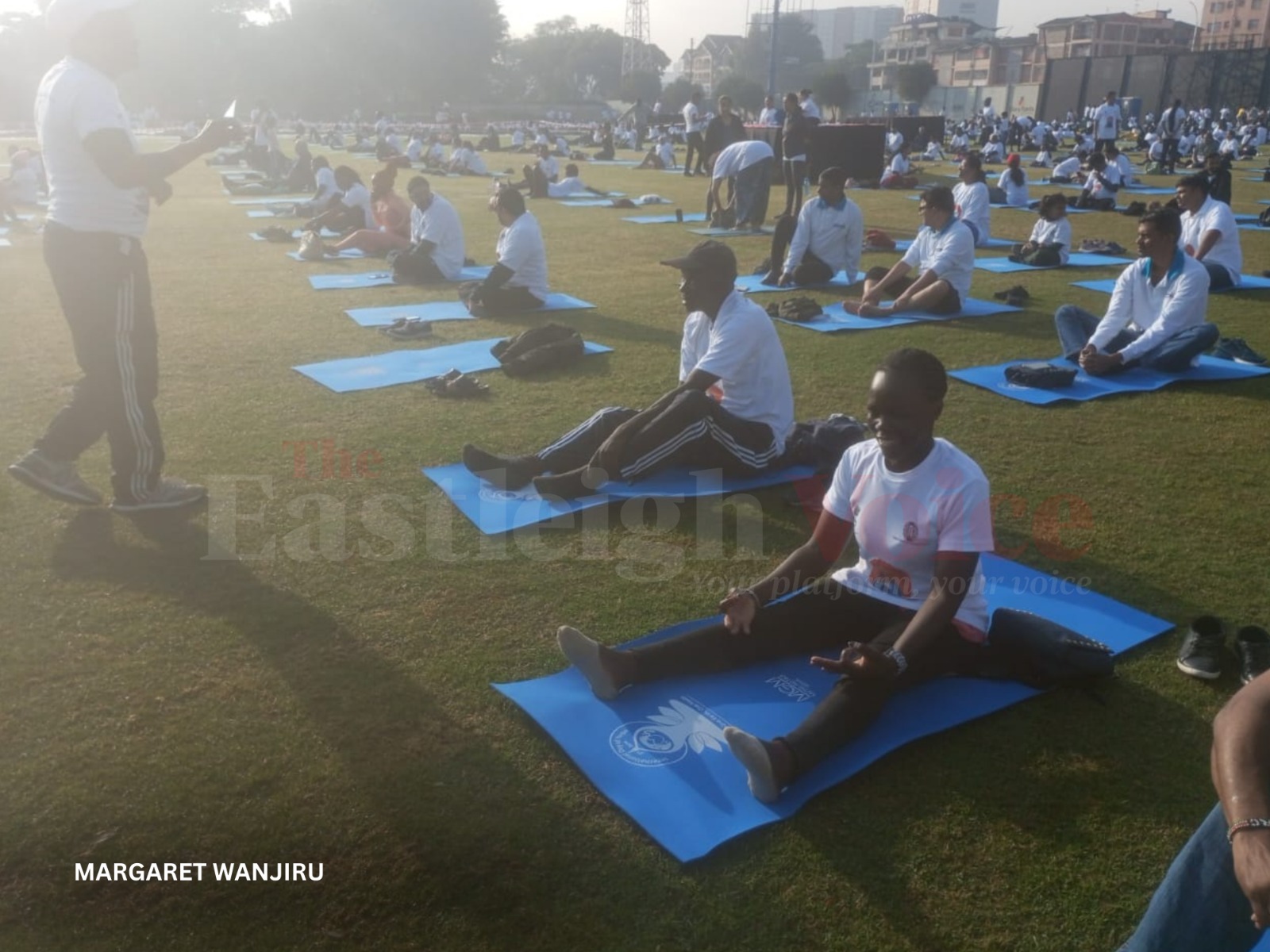Cold showers: The wellness trend making waves, but are they for everyone?

Cold showers are far more than just a trendy wellness fad. With potential benefits such as improved mood, enhanced immunity, muscle recovery, and better skin, they can play a meaningful role in a healthy lifestyle.
In the ever-evolving world of wellness trends, cold showers have swiftly transitioned from a niche practice to a mainstream phenomenon, particularly on TikTok.
People around the globe are embracing the habit for its potential health benefits, with wellness influencers, athletes, and mental health advocates touting everything from improved mood to enhanced recovery times.
More To Read
- From stalls to screens: Eastleigh traders power quiet digital revolution through social media
- TikTok launches ‘manage topics’ feature to let users personalise video feeds
- Nairobi faces deep chill of 10°C Thursday night as rain sweeps across several counties
- TikTok users can now save songs directly to SoundCloud
- Court gives KFCB nod to regulate social media content
- TikTok unveils "TikTok for Artists" platform to empower musicians, creators
Yet, as the buzz around cold showers grows, it's essential to examine both the potential rewards and the risks, especially for individuals with specific health conditions.
Why cold showers are gaining popularity
One of the main reasons cold showers are becoming more popular is their reputed ability to increase alertness and energy levels.
When cold water hits the skin, it stimulates the release of endorphins—the body’s natural “feel-good” hormones. This rush can help alleviate symptoms of depression and anxiety, offering a natural mood boost.
In fact, a 2008 study published in the International Journal of Circumpolar Health found that regular cold-water exposure could have antidepressant effects. Researchers suggested that cold showers activate the sympathetic nervous system, triggering the release of noradrenaline, a hormone that helps regulate mood and stress levels.
Further supporting this, a 2016 study published in the North American Journal of Medical Sciences examined the effects of cold-water immersion on mood and anxiety. The study concluded that participants experienced significant reductions in symptoms of anxiety and depression after regular exposure, suggesting a low-cost alternative treatment, perhaps even something more Kenyans could consider incorporating into their daily routines.
Boost immune system
Cold exposure is also celebrated for its potential to boost the immune system.
A 2016 study in the European Journal of Applied Physiology found that individuals who regularly immersed themselves in cold water showed increased levels of white blood cells, which are crucial for fighting infections.
“When the body is exposed to cold temperatures,” the researchers explained, “it works harder to regulate its core temperature, which increases circulation and activates the immune system’s defences.”
For athletes, cold showers—or full-body ice baths—are a common post-workout recovery tool.
A 2015 study published in the Journal of Sports Science & Medicine found that cold-water immersion significantly reduced muscle soreness and inflammation after intense physical activity.
“The cold water helps constrict blood vessels, reducing swelling and stiffness. When the body warms up again, blood flow returns, flushing out toxins and delivering oxygen-rich blood to aid recovery,” explains Brian Wahinya, a professional rugby player.
“Personally, after intense training or matches, I rely on cold immersion to speed up recovery. It reduces inflammation and allows me to return to training faster, feeling refreshed and less sore,” he adds.
Cold showers may also benefit skin and hair health. Unlike hot water, which can strip the skin of its natural oils, cold water helps tighten pores and hair cuticles, potentially locking in moisture.
A 2019 study published in Dermatology Research and Practice suggested that cold water can improve skin texture by tightening pores, reducing puffiness, and boosting circulation, contributing to a more radiant complexion and healthier-looking hair.
The risks
Despite their benefits, cold showers are not suitable for everyone and can pose risks, especially for those with certain health conditions.
1. Heart Conditions
One major concern is for individuals with cardiovascular issues. Cold water can cause a sudden shock to the body, increasing heart rate and blood pressure.
A 2016 study in the British Medical Journal warned that cold-water immersion could trigger heart arrhythmias or other complications in people with heart disease.
“For those with cardiovascular conditions, the abrupt temperature change can be dangerous,” the authors noted.
2. Respiratory Conditions
Cold showers may also exacerbate respiratory issues. For individuals with asthma or chronic obstructive pulmonary disease (COPD), the shock of cold water can tighten airways, leading to wheezing, breathlessness, or difficulty breathing.
A 2019 study in the Journal of Respiratory Medicine highlighted how cold exposure can worsen symptoms in patients with pre-existing lung conditions.
“Cold exposure can trigger airway constriction, making breathing more difficult for individuals with asthma or other respiratory issues,” says Dr Ann Wairimu, a pulmonologist.
“It’s essential to ensure your condition is well-managed before trying such practices.”
3. Raynaud’s Disease
Individuals with Raynaud’s disease—a condition where blood vessels in the extremities constrict in response to cold—should also avoid cold showers.
“Sudden cold exposure can trigger painful episodes or restricted blood flow,” explains Dr John Murembi, a consultant physician.
“A more moderate, controlled temperature is a safer option.”
4. Pregnancy
Cold showers may not be advisable during pregnancy either. The body undergoes significant changes during this time, and extreme temperature shifts could place stress on both the mother and the baby.
“During pregnancy, a woman’s body is particularly sensitive to extreme temperatures,” says Dr Jacinta Waiyego. “Cold showers might place unnecessary stress on the circulatory system. It's best to consult a healthcare provider before attempting this practice.”
Cold showers are far more than just a trendy wellness fad. With potential benefits such as improved mood, enhanced immunity, muscle recovery, and better skin, they can play a meaningful role in a healthy lifestyle.
However, the practice is not without serious risks, particularly for individuals with heart conditions, respiratory issues, or circulatory disorders.
If you're considering adopting cold showers as part of your wellness routine, it's crucial to evaluate your personal health status and consult a medical professional where needed.
Top Stories Today















































